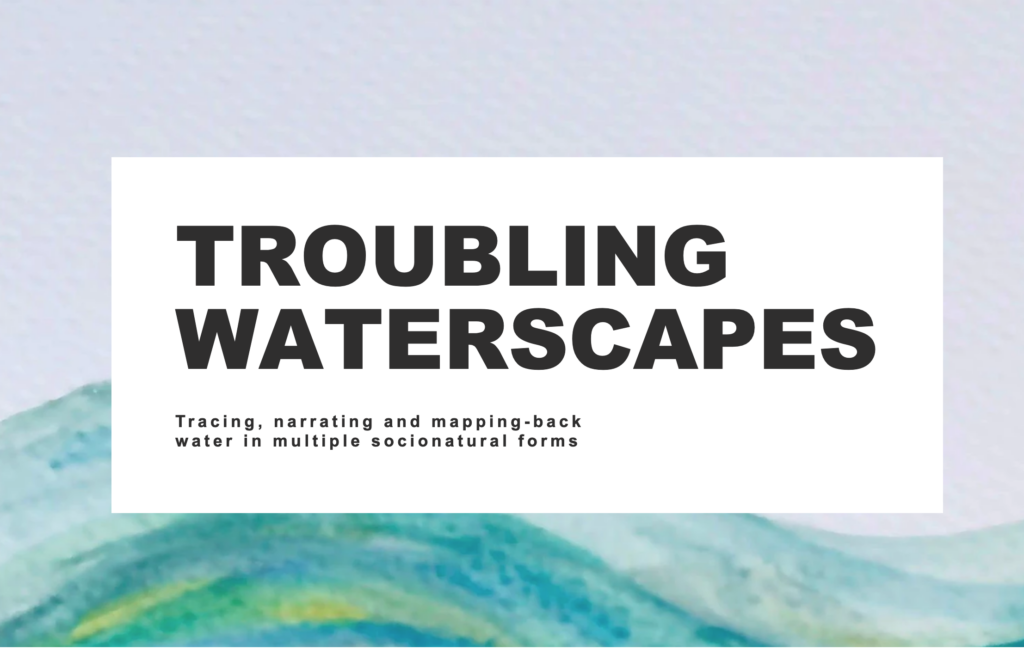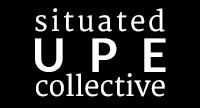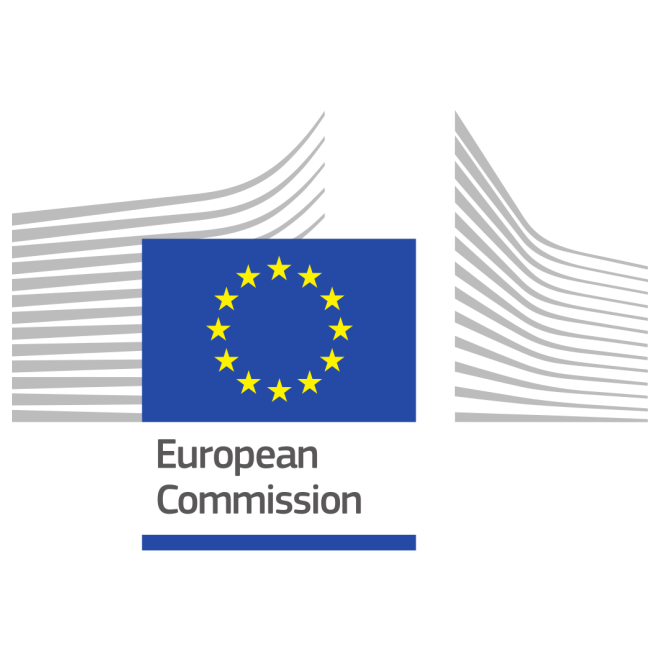Arianna Tozzi, Irene Leonardelli, Enid Still, and Sneha Malani describe their work with counter-mapping. Using rivers and the flows of water and pollution as entry points, they capture urban-rural interdependencies in their rich and multi-faceted website Troubling Waterscapes. Here they provide a background to their counter-mapping project.
This project began with a friendship between three PhD researchers, and an artist/practitioner, with a common interest in water and agriculture, and a desire to explore creative methods of engaging with our research topics.
‘Troubling Waterscapes’ was developed as an online exhibition for the bi-annual POLLEN conference in September 2020: Contested Natures: Power, Possibility, Prefiguration. Rather than classic academic presentations and panel discussions, where words and theoretical concepts dominate, we invited participants to think with and through water in creative ways. We used ‘troubling’ as a praxis of questioning dominant narratives of resource commodification ‘from above’ and victimhood ‘from below’, inviting the audience to think through the complexities of the uneven socionatural relations that surround us.

Our story begins in Pravah, the fictional name for a rural village in Maharashtra, India, where Irene lived during her PhD research, learning from the farming practices of women growing flowers to supply to markets in the nearby city of Pune. The waters of Pravah are troubled in many complex ways. Located in a notoriously drought-prone region, a wastewater transfer scheme transports wastewater from Pune to the village for irrigation purposes. As the wastewater reaches Pravah, it is stored in wells and ponds across the community, percolating into the aquifer and contaminating existing water sources. Though the scheme increased water supply and brought economic opportunities for some, it has also profoundly re-shaped Pravah’s (waste)waterscape. Ironically, a village, once famous for its sweet, pure water, nowadays needs to purchase purified water from a ‘water ATM’ as the drinking well is now contaminated. Together with people, animals, plants, crops, weeds everything and everybody has been drawn into rearranging their everyday dealings with water, navigating across different layers of purity and contamination. As the wastewater makes its way back to the city of Pune in the form of flowers, its circulation creates complex urban-rural socionatural entanglements whose complexities became the initial canvas for our counter-mapping journey.
Through Irene’s stories and maps of Pravah we started reflecting together on different ways of being with, understanding, knowing, and feeling water. Speaking online from isolation across different parts of the world, we started adding layers to the map in the form of photos, poetry, satirical sketches, reflection, and animations. These expressions were sparked by our collective conversations as we further troubled and questioned our engagement with waters and agriculture from multiple perspectives. Together, we reflected on what water infrastructures are (materially and symbolically) about their histories and meanings. We discussed how the people’s experiences and engagements with different waters (groundwater, wastewater, rainwater) change throughout time and space, and how these differences are reflected across multiple intersecting identities. We questioned how the very materiality of water, its fluidity, transparency, taste, affects, everyday dealings, and experiences changed across different waterscapes.

As part of the exhibition, we extended these questions to the broader audience as we invited people to reflect with us, contributing with their artistic work and counter-maps of the troubled water relations in their research and everyday life from other sites and places.
We hope this process and visualisation won’t end with this website. Rather we hope it will inspire others to use creative methods to think through the complexities of socionatural relations and interdependencies.
By Arianna Tozzi, Irene Leonardelli, Enid Still, Sneha Malani
Our website — https://wegoitn.wixsite.com/troubling-waters — was collectively designed but created and produced by Karin Hueck.
For more information about the project, see this prezi-presentation.
This project has received support and funding from the European Union’s Horizon 2020 research and innovation programme under the Marie Skłodowska-Curie grant agreement No 764908.




